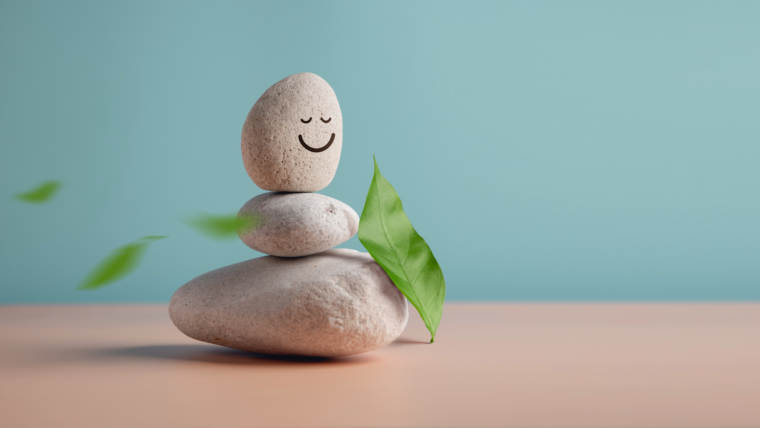Not too many people are aware of the multiple benefits of meditation and its many other advantages in their personal life. Yet, it is becoming a popular way to cope and deal with every day stressors.
Meditation is not just a way to cope; it can also positively affect your overall health and wellbeing.
Here are fifteen reasons why you should make meditation a regular daily practice.
#1: Reduces Stress
Stress can cause a physical reaction in the body. Some of the symptoms include extreme tiredness, nausea, and body aches. When you feel physically unwell, you stay home to try to feel better. Stress induces symptoms are often harder to manage.
Accordingly, stress reduction is one of the primary uses of meditation. Understanding the benefits of breathing to relax can help you learn to manage negative thoughts and feelings better.
Once you begin to control your breathing, you will learn to refocus your negative emotions and reverse your body’s stress responses as well as enjoying physical relaxation.
#2: Relieves Anxiety
Another advantage of meditation is to alleviate feelings of anxiety. Anxiety can present in many ways; Some people who suffer from anxiety disorders report feeling as though the inside of their body is shaking.
Others have difficulty breathing, but anxiety manifests in many ways, and symptoms vary from person to person.
Meditation can calm these difficult physical and emotional symptoms and help focus on your life’s positives and control the body’s reaction to emotions.
#3: Helps Overcome Depression
Depression is a severe problem that many Australians deals with at some point in their life. Going through depression can take a toll on your physical, emotional, and social states, as well as being challenging to overcome.
As I mentioned before, meditation helps you relax and focus your mind’s energy. This results in a greater sense of clarity with the feelings and thoughts inside your head so you can gradually begin to change your thought patterns.
Many people use meditation as a natural way to treat depression, rather than resorting to medication or having to see a psychologist week after week.
#4: Promotes Positive Thinking
Negative thinking is pervasive, and often it feels like your thoughts are think you, instead of the other way around.
The key to transcending negative thoughts is to understand that even though they may ‘feel’ real, they are not who you are.
With enough practice and effort, you can use meditation to promote positive thinking, which will in turn cause healthier feelings that will increase your overall physical and mental health.
#5: Lengthens Attention Span
When you meditate, you will find that your mind will wander, and it will be hard to focus your thoughts at first. Each time this happens, you will need to take a moment to refocus and start again.
The more you practice, the fewer times your mind will wander, and the less time it will take you to refocus; but remember, some days are better than others. A wandering mind does not equate with failure.
Not only will your mind tend to wander less during your meditation practice the more you stick at it, but also, your attention span will be better during essential tasks in your daily life. You will become less distracted and more productive in many areas.
#6: Improves Sleep
Does your mind suddenly become very busy when it is time for sleep? Maybe you find it difficult to remember things during the day, but when you lie down to sleep, everything comes back at once. Meditation can help with this too.
Meditating a few minutes a day can help to calm the mind and relax the body. Try meditation before bed or make it a part of your nighttime routine. After a while, you will find that your mind will not become so busy when you are trying to rest.
#7: Helps Manage Pain
People who suffer from chronic pain know the impact that pain can have on all aspects of living. Pain makes it difficult to live a normal life, and many people need to use medications and encounter side effects that hinder their ability to socialize or live a normal life.
Meditation can help with the symptoms of chronic pain. During mediation, your brain releases endorphins into your body. These endorphins are known as natural pain relievers.
They cause the muscles around the joints to become more relaxed and helps you to feel calmer.
These things combined will help ease your physical pain, and the emotional agitation that often accompanies it.
#8: Lowers Blood Pressure
High blood pressure can be caused by stress, anxiety, pain, or other medical issues. Mediation helps to reduce the symptoms that are associated with these issues.
The simple act of slowing down breathing, focusing your mind and grounding yourself has the effect of immediately lowering blood pressure.
Try it for yourself! You’ll notice an immediate drop in blood pressure at the time of meditation, as well as an ongoing improvement as your anxiety and stress levels dissipate.
#9: Relieves Headaches
We have already established that meditation can reduce the symptoms of stress. One of the ways it does this is by obstructing brain signals to the part of the nervous system that makes your body react to stress.
Many times, headaches are stress responses, caused tension and anxiety. Learning mindfulness meditation can help to reduce or relieve headaches by lessening underlying stress.
#10: Promotes Kindness
When you feel good, you want others to feel good. Kind acts are one way that people help to bring a smile to the faces of others.
Therefore, as you begin to feel the positive effects of mediation, you will start to notice a kinder, gentler you.
Can you imagine a world where one kind act can make a difference for many? Meditation can help you see it.
Many people who experience an act of kindness from someone will often reciprocate this act for others, creating a series of random acts of kindness.
#11: Helps with Creativity
Practising meditation will help to open your mind to new ideas and ways of thinking. When you quiet your mind, you reduce the clutter that gets in the way of inspiration.
It will also help to improve your attention span and open your mind to unique ideas. If you are a creative person, it will help expand your creativity and better your thought process.
If you want to be a creative thinker but lack ideas and attention, mindfulness meditation will help you become more open to fresh possibilities.
#12: Relieves Feelings of Burnout
Meditation can give you a new perspective on life. If you are dealing with burnout at work, it could help you reflect on why you feel this way, or rediscover what you liked about your position in the first place. You can take these insights and allow a solution to unfold.
Learning how you feel and what you need to do may not fix your burnout, but it may lead you on a new path that you hadn’t considered before. In short – meditation clears the unwanted debris in your mind and helps you see more clearly.
#13: Helps Control Your Temper
If you find that you are snapping at the people you love for small reasons and do not always understand why, meditation can help calm the muddied waters.
While meditating, you may gain insight about your triggers and why you feel out of control at times. It will also help you focus on calming yourself and keep you from reacting harshly while you are upset.
In breathing first and then responding, you will also learn to control your temper when things get heated.
#14: Decreases Age-Related Memory Loss
Have you ever walked into the kitchen and forgotten why you went in there? Or pulled out a pen to write something down and forget what you were going to write down?
As we get older, we find ourselves doing things like this more and more. Meditation assists by helping you to refocus your brain on what is important and let go of what isn’t. With a clear, focused mind, you’ll become less forgetful.
#15: Enhances Self-Awareness
Of all the reasons to use meditation in your daily life, the fact that it helps you become more self-aware is probably the biggest drawcard.
While meditating, you will gain great insight as to what makes you tick, and as a result you’ll naturally become less reactive and more patient with life.
Most people get lost in thought and become totally identified with the stories their mind is telling them, creating a lifetime of suffering and misery. Those who meditate have a real chance of breaking the cycle of suffering through awareness.
Research has uncovered that mindfulness meditation can help make changes to your brain chemistry to improve your mental and physical health. Many people are unsure how to meditate, but it is not a complicated process. You can begin meditating with a few easy steps.
- Find a quiet place;
- Close your eyes and relax;
- Take deep soothing breaths and focus your mind on your breathing;
- Become aware of the emotions happening in your body while you are breathing;
- When your mind begins to wander, refocus on breathing
Some people like to attend group classes or use a recording to help focus their mind when they first begin, but this is not essential.
When you are ready, you can start reading, watching videos, using an app, or taking a class to help you get better at mediation and dive deeper into your new skills. In time you will feel more at peace with yourself and your feelings.





